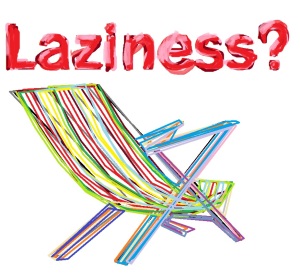via Daily Prompt: Renewal

Apparently I am an evil man.
I used to attend the Roman Catholic churches here in Poland; no more, because hearing evil from the mouths’ of priests just left me unhappy, plus I was tired of walking out of churches mid-mass. The church-goers were not the problem, just your usual people one meets anywhere, but I considered it unfair to burden them.
The primary issue was that, apparently, all evil comes from the West, making me feel all peculiar being the bringer of evil sat in the midst of the righteous. My opinion was that all evil comes from the heart, in which case the heart lies in the West, or maybe it was that the priests had forgotten the centuries of struggle with Russia, to the East. Perhaps, though, they thought that the end of Communism would mean Poles would be free to spend all their free time in the church, freely following their priests’ lead in all things in life, when it turns out that what most people wanted with freedom was to be, well, free.
As a man of science who believes in God, I discover that to those who are also believers in Science or those who are Atheists, I am evil because I believe in God. Am I thus taking evil with me wherever I go, bringing it fresh to the Godly and the Neutral alike, one evil for the former and another for the latter?
I consider part of the problem to be books. Did I tell you that I bring evil to the world of books as well? I was once rash enough to admit that I had thrown some books out with the rubbish, although in my defense I knew at the time that some of the poor of the city regularly went through the waste, collected any books they found and attempted to sell them on the streets.
Evil is my name.
Books live in the past, beginning their lives when they are written and then growing older, like some kind of civilisation where the citizens procreate and die, only ending when the last copy is destroyed. Books of science and books of religion are very similar, in that each states what the authors believe of the world at the time of writing, a summary of the thoughts of many people. Science books can be deceptive because most are fairly new, yet that is not the same as making them true in their entireties. Science grows in two ways: by adding new content to the old, and by replacing some of the old knowledge following the twists of our understanding.
Schooling, whether dealing in religion, the sciences or whatever, has a tendency to emphasis the idea that all ideas are known. The teacher gives a problem, and the answer to the problem is to be found in a book. Again and again. Therefore books are founts of all knowledge.
As a research and development engineer I have a different viewpoint, because in this field there are no books to give the ideas. Problems are met every day, and they have to be solved by experience, comparison with similar problems from the past, looking for patterns in the data that might suggest a new reality, or blind luck. New science books ultimately come from the work of people like me, not from teachers or priests – they merely exist in an old vision of the world.
Religious books can be very old, but that is not to say that what they offer is irrelevant, in fact they are quite remarkable as they have to speak to people from all kinds of backgrounds, classes, technologies and so forth, but they also have their flaws as nothing so general can meet all specific needs. These flaws are often deliberately selected by people who do not like religion as evidence that all the religion, all religion, is invalid.
Once the current thought in science was that heat and cold were separate fluids that somehow flowed through solid materials. The idea seemed to fit the evidence, until one day someone found a way to disprove it, and science moved on. That meant that the science books of the time were flawed, and still are, we just have no way of knowing which bits are true and which we assume to be true. On that basis, books of science and religion are indistinguishable from each other, we just make our choices which of which we believe.
Or at least, we should.
What often happens is that people make the choices that suit them, them spew vile hatred of people who state that they have made other choices, using clever-clever put downs based on how wonderful their choices are.
There are people out there who want power, and to get this they find it most convenient to climb an established hierarchy that heads in the required direction. These people only believe in themselves, but they pretend to hold the values of the hierarchy, and without a qualm will shake that hierarchy to make their passage easier, and to damage competing hierarchies. Up they rise, powered by their own hot air.
Education should allow us to solve problems, and make choices that suit us and our communities, so that when a problem presents itself we can respond in an appropriate manner. Each of us has our own set of skills, so there is no need for any of us to be able to solve all problems, but if we care anything for our communities we should be able to put our unique efforts to make life better for all. If we see groups apparently attempting to remove the freedom from other groups of people, then the people to defeat are the power-garnering leaders, not the others in the group. If we simply attack the group, all we are making of ourselves is another group who wishes to remove another’s freedom. No amount of self-justification of our group makes taking the freedom from another justified – it just makes us the problem.
So am I evil? Or am I just an easy target for other people’s frustration? People too inconsiderate to care that the people reading what they write are innocent. How many innocent people have to be abused every day until the abusers realise that they are part of the problem and not the solution?








Recent Comments